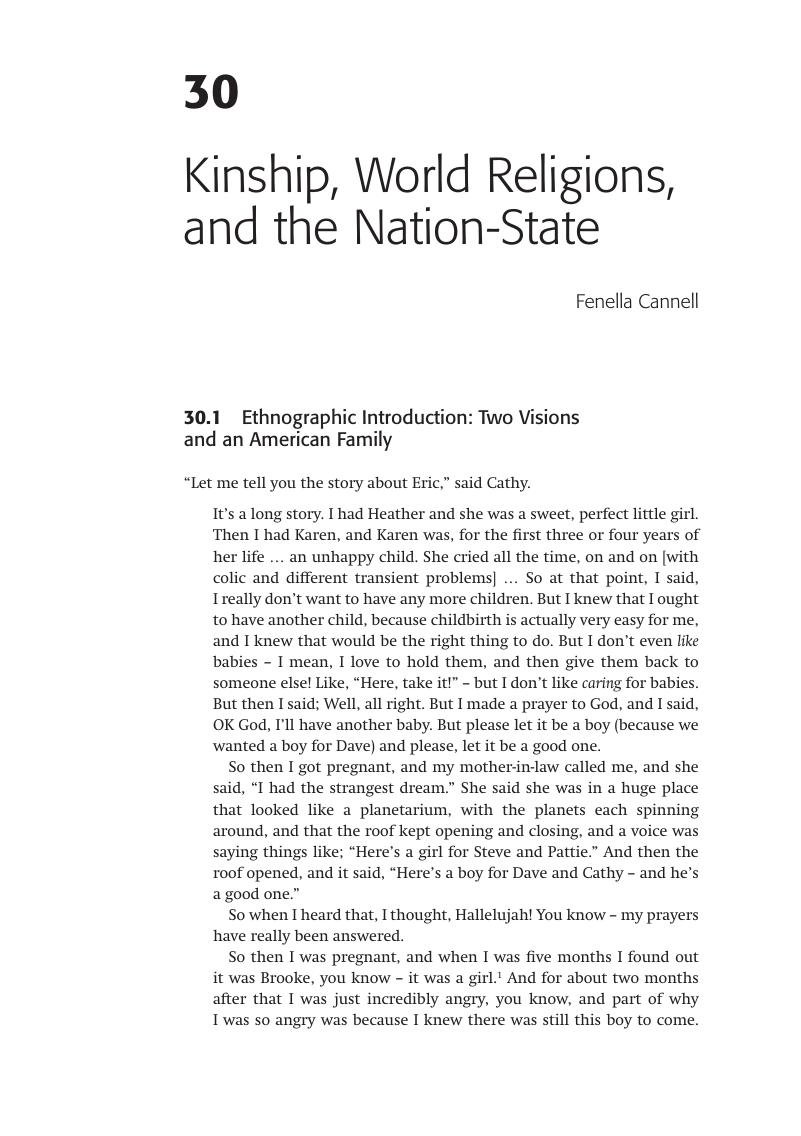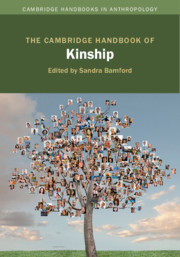Book contents
- The Cambridge Handbook of Kinship
- Cambridge Handbooks in Anthropology
- The Cambridge Handbook of Kinship
- Copyright page
- Contents
- Figures
- Tables
- Contributors
- 1 Introduction: Conceiving Kinship in the Twenty-First Century
- Part I Opening Frameworks
- Part II The (Non)Biological Basis of Relatedness
- Part III Reproducing Society: Gender, Birth, and Power
- Part IV Transnational Connections
- Part V Technological Conceptions
- Part VI Kinship and the Nation-State
- 26 Reading the Contested Forms of Nation through the Contested Forms of Kinship and Marriage
- 27 The Prison as a Technology of Care in Northeast Brazil
- 28 The Interface between Kinship and Politics in Three Different Social Settings
- 29 A Global Family: Kinship, Nations, and Transnational Organizations in Botswana’s Time of AIDS
- 30 Kinship, World Religions, and the Nation-State
- Index
- References
30 - Kinship, World Religions, and the Nation-State
from Part VI - Kinship and the Nation-State
Published online by Cambridge University Press: 22 April 2019
- The Cambridge Handbook of Kinship
- Cambridge Handbooks in Anthropology
- The Cambridge Handbook of Kinship
- Copyright page
- Contents
- Figures
- Tables
- Contributors
- 1 Introduction: Conceiving Kinship in the Twenty-First Century
- Part I Opening Frameworks
- Part II The (Non)Biological Basis of Relatedness
- Part III Reproducing Society: Gender, Birth, and Power
- Part IV Transnational Connections
- Part V Technological Conceptions
- Part VI Kinship and the Nation-State
- 26 Reading the Contested Forms of Nation through the Contested Forms of Kinship and Marriage
- 27 The Prison as a Technology of Care in Northeast Brazil
- 28 The Interface between Kinship and Politics in Three Different Social Settings
- 29 A Global Family: Kinship, Nations, and Transnational Organizations in Botswana’s Time of AIDS
- 30 Kinship, World Religions, and the Nation-State
- Index
- References
Summary

- Type
- Chapter
- Information
- The Cambridge Handbook of Kinship , pp. 700 - 728Publisher: Cambridge University PressPrint publication year: 2019
References
- 2
- Cited by



